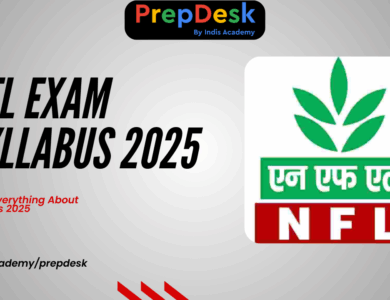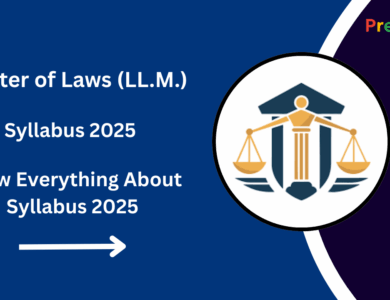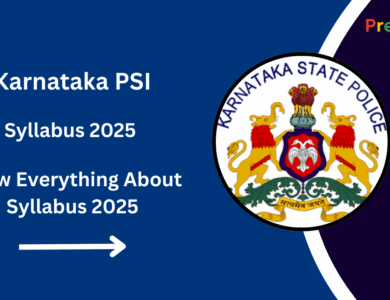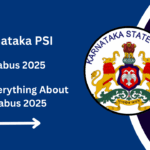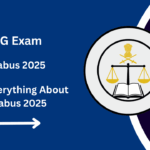This enhanced B.Com syllabus guide includes both core and elective subjects, with profound coverage of individual topics, descriptions, and marks allocation. Ideal for aspirants aiming for a strong academic performance.
The Bachelor of Commerce (B.Com) is a 3-year undergraduate program (6 semesters) focused on finance, economics, accounting, business operations, and specialized electives. It equips students for careers in commerce, banking, finance, taxation, and management.
B.Com Exam Pattern & Evaluation
Component
Details
Semester Exams
At end of each semester
Internal Assessment
20–30% (assignments, mid‑terms, project work)
University Exams
70–80% theory/practical papers
Passing Marks
Minimum 40% per subject
Total Credits
100–160 per this UGC model
Semester-Wise Detailed Subjects & Topics
Semester 1 – Foundations
Subject
Key Topics & Descriptions
Marks
Financial Accounting (Core)
Accounting Principles: GAAP, dual concept, accrual vs cash basis
Journal & Ledger: Recording transactions and ledger posting
Trial Balance & Rectification: Identifying and fixing errors
Final Accounts: Preparing profit & loss, balance sheet for sole proprietorship
Depreciation & Provisions: Straight-line & diminishing balance method
100
Business Organization & Management (Core)
Forms of Organization: Sole, partnership, company – features and suitability
Management Process: Planning, organizing, directing, controlling
Organizational Structure: Departmentalization, delegation
Motivation & Leadership: Theories (Maslow, Herzberg), leadership styles
100
Business Communication (Core)
Written Communication: Business letters (enquiry, orders), formal reports
Oral & Non-Verbal: Presentation skills, body language
Resume & Interview Prep: CV design, mock interviews
Digital Communication: Email etiquette, digital messaging tools
100
Business Mathematics (Core)
Ratio & Proportion: Applications in financial analysis
Simple & Compound Interest: Time value of money concepts
Annuities & Present Value: EMI, perpetuities
Matrices & Linear Equations: Business modeling applications
100
Environmental Studies (AECC)
Ecosystems & Biodiversity: Types, conservation methods
Environmental Pollution: Causes, effects, control measures
Sustainability & Management: Sustainable practices, global initiatives
50
Semester 2 – Building Blocks
Subject
Key Topics & Descriptions
Marks
Corporate Accounting (Core)
Issue of Shares & Debentures – pricing, underwriting
Redemption & Buy‑Back accounting
Preparation of Company Final Accounts – P&L, balance sheet (Schedule VI)
Amalgamation, Absorption, Reconstruction – AS 14 treatment
100
Business Laws (Core)
Indian Contract Act: Offer, acceptance, performance, breach
Sale of Goods Act: Types of goods, transfer of property, rights & duties
Limited Liability Partnership Act: LLP formation, advantages
100
Microeconomics (Core)
Law of Demand & Supply: Market equilibrium, price determination
Elasticity Concepts: Price, income, cross elasticity
Market Structures: Perfect competition, monopoly, oligopoly
Consumer Theory: Utility, indifference curves, budget constraint
100
Business Statistics (Core)
Data Collection & Classification
Measures of Central Tendency & Dispersion
Correlation & Regression Analysis
Index Numbers & Time Series
100
English Language (AECC)
Grammar & Comprehension
Essay Writing & Summarizing
Business Correspondence
50
Semester 3 – Intermediate Applications
Subject
Key Topics & Descriptions
Marks
Income Tax Law & Practice (Core)
Residential Status & Scope: Incidence of income tax
Heads of Income: Salaries, house property, PGBP, capital gains, other sources
Deductions & Exemptions: Chapter VI‑A sections (80C–80U)
Computation of Total Income and tax liability
Filing Returns & Advance Tax: Form ITR‑1 to ITR‑7
100
Company Law (Core)
Company Formation: Incorporation, promoters’ legal position
MOA & AOA: Contents and alterations
Share Capital & Debentures: Allotment, calls, forfeiture
Directors & Meetings: Powers, removal, types of meetings
Winding Up: Modes and consequences
100
Macroeconomics (Core)
National Income Concepts: GDP, GNP, NNP—measurement methods
Inflation & Unemployment: Causes, measurement, control
Money & Banking: Functions of money, modern banking system
Fiscal & Monetary Policy: Objectives, instruments, limitations
International Trade: Balance of payments, exchange rate systems
100
Banking & Insurance (Core)
Banking History & Classification
Central Bank: Role of RBI, monetary control
Commercial Banking: Credit creation, priorities
Insurance Fundamentals: Life, general insurance, IRDA
Regulation & Consumer Protection: Banking Ombudsman
100
Skill Enhancement Course – Digital Tools (SEC)
Email & E‑filing Tools
Basics of Excel for Accounting
Digital Marketing Snapshot
50
Semester 4 – Managerial Core
Subject
Topics & Descriptions
Marks
Cost Accounting (Core)
Cost Concepts & Classifications
Material & Inventory Control: EOQ, FIFO, LIFO methods
Labor Costing & Overheads: Methods of allocation
Job & Process Costing
Cost Sheet Preparation
100
Principles of Marketing (Core)
Marketing Mix (4Ps)
Segmentation, Targeting & Positioning
Consumer Behavior Insights
Branding & Brand Equity
Retailing & Digital Marketing Introduction
100
Indian Economy (Core)
Structure of Indian Economy
Economic Planning in India
Agriculture & Rural Development
Industry & Services
Current Economic Issues
100
Entrepreneurship Development (Core)
Role & Types of Entrepreneurs
Startup Ecosystem & Support
Business Plan Preparation
Institutional Finance & Schemes
Project Appraisal & Feasibility Study
100
Skill Enhancement Course – Tally / E-commerce (SEC)
Tally: Fundamental operations
Basics of Online Business
50
Semester 5 – Specialized Learning
Subject
Topics & Descriptions
Marks
Auditing & Corporate Governance (Core)
Types & Objectives of Audit
Audit Planning & Control
Internal Control & Documentation
Vouching & Verification
Corporate Governance Provisions
100
Financial Management (Core)
Time Value of Money
Capital Structure & Cost of Capital
Working Capital Management
Financing & Dividend Policy
Capital Budgeting
100
Elective – DSC 1 (Choose 1)
Taxation: Advanced GST, Corporate Tax, tax planning
Marketing: Advanced advertising, e‑CRM
HRM: Training & development methods, labor laws
Banking & Insurance: Risk management, loan appraisal
Economics: Trade policy, public finance
100
Generic Elective – GE
Courses like Psychology, Political Science, IT applications, NSS etc.
100
Semester 6 – Capstone Phase
Subject
Topics & Descriptions
Marks
Management Accounting (Core)
Ratio & Fund Flow Analysis
Cash Flow Statement
Budget & Budgetary Control
Standard Costing & Variance Analysis
100
International Business (Core)
Imperatives & Modes of Globalization
WTO Agreements & Trade Blocks
Foreign Exchange & Documentation
Export–Import Policies & Incentives
International Marketing Mix
100
Elective – DSC 2 (Advanced)
Taxation: Transfer pricing, international tax
Marketing: Integrated marketing communication
HRM: Strategic HR, performance management
Banking & Insurance: Investment banking, risk & reinsurance
Economics: Econometrics, environment & economic policy
100
Project & Viva Voce
Research Project on core/elective subject
Report & Presentation
Viva Examination
100
B.Com syllabus PDF Download
Download Full B.Com Syllabus (UGC Model Curriculum)
Recommended Books
Subject
Books & Authors
Financial Accounting
T.S. Grewal; R.L. Gupta; S.P. Jain & K.L. Narang
Corporate Accounting
S.N. Maheshwari; Shukla & Grewal
Business Law
Avtar Singh; N.D. Kapoor
Micro & Macro Economics
D.M. Mithani; M.L. Seth
Cost Accounting
M.N. Arora; Jawahar Lal
Financial Management
I.M. Pandey; Prasanna Chandra
Auditing
B.N. Tandon; Kamal Gupta
Preparation Strategies
Master core theory and practice with regular revision
Attempt past year questions for exam pattern familiarity
Form study groups for discussion and doubt-clearing
Use online platforms (NPTEL, SWAYAM, YouTube) for extra help
Keep updated with current affairs and economic developments
Elective Specializations (Sem 5 & 6)
Select two DSC (discipline-specific) electives such as:
Taxation : GST, Income Tax, TDS, return filingMarketing : Digital marketing, consumer behavior, brandingHuman Resource Management : Training, performance appraisal, HR lawsBanking & Insurance : RBI functions, banking instruments, insurance policiesEconomics : Indian Economy, international trade theory, policy apps
Conclusion
This comprehensive B.Com syllabus is designed to help you gain clarity on course structure, subjects, electives, and topic depth. Use this WordPress-ready format to share or publish on your educational blog or website effectively.
Copy URL
URL Copied

